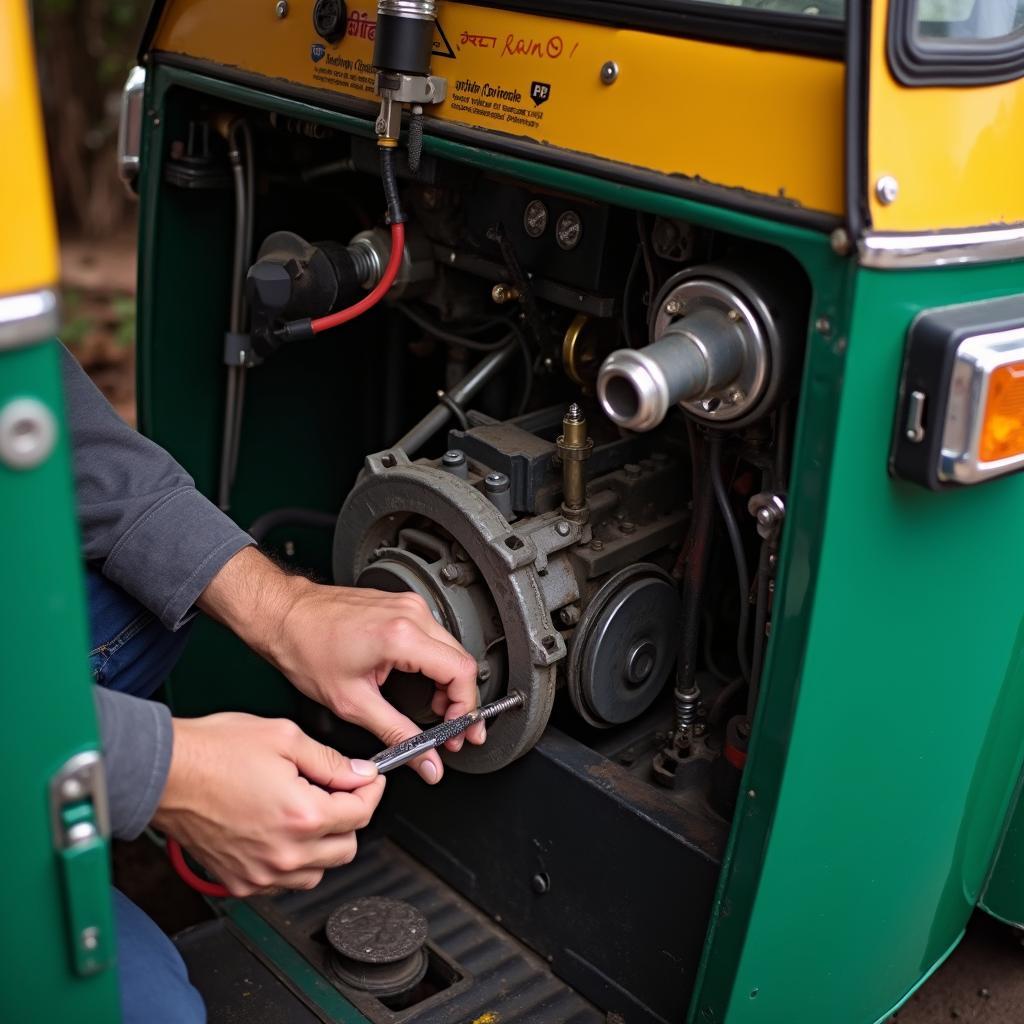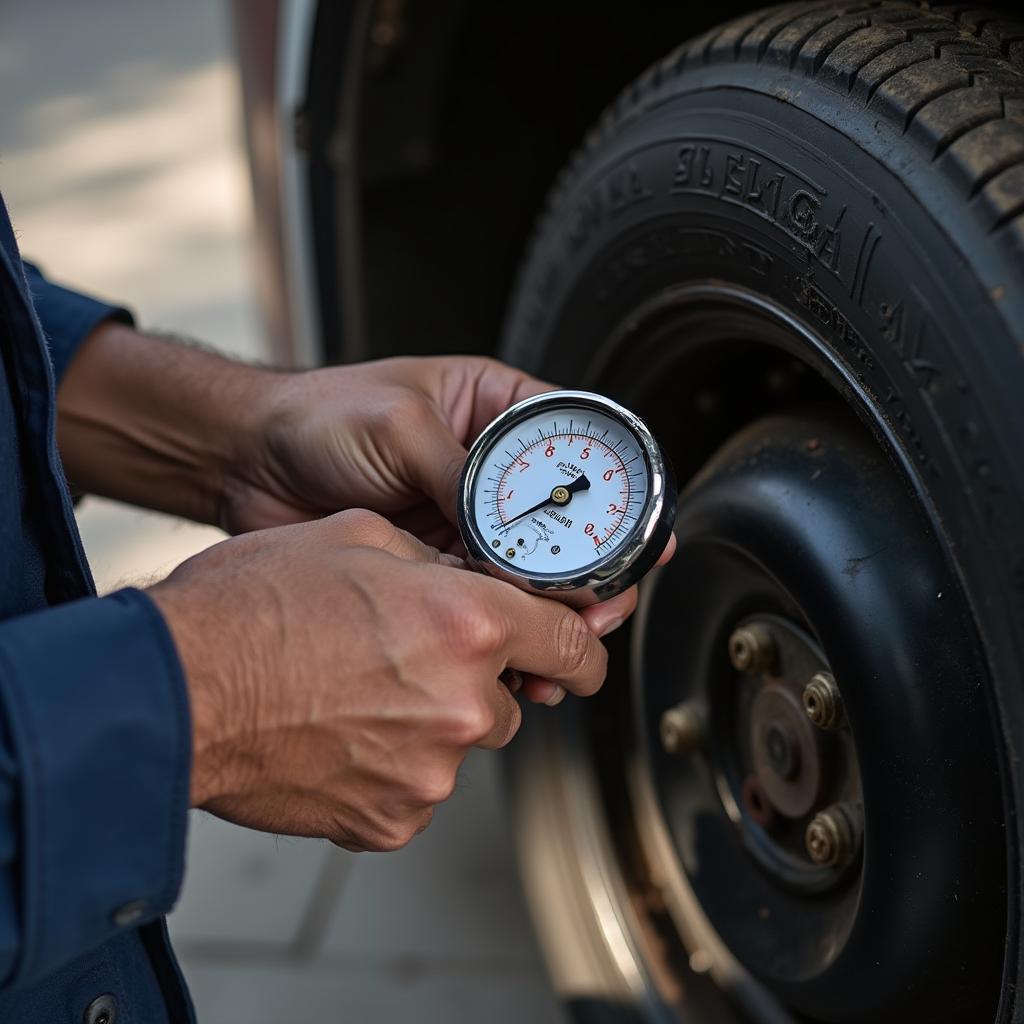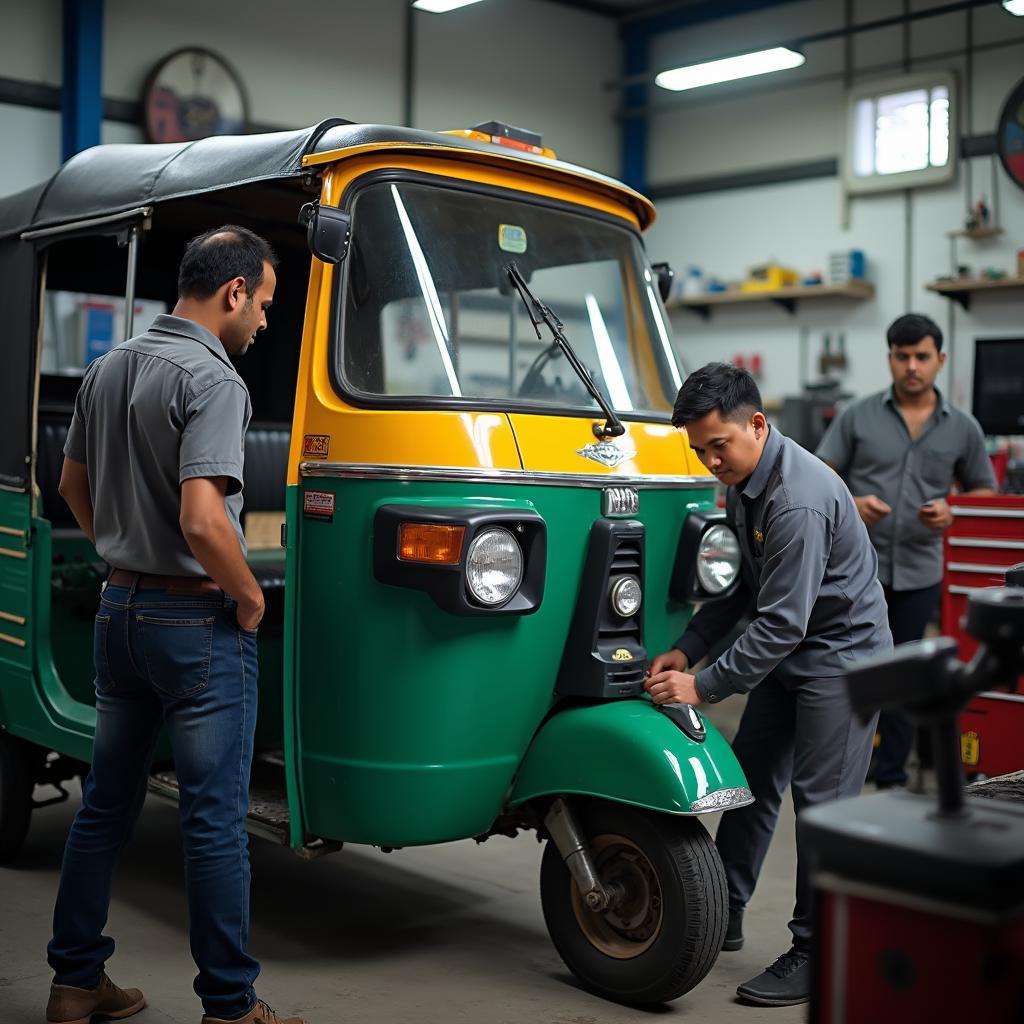Auto Rickshaw Servicing is crucial for maintaining the vehicle’s performance, longevity, and safety. Regular maintenance ensures smooth operation, reduces the risk of breakdowns, and can even save you money in the long run.
Understanding the Importance of Regular Auto Rickshaw Servicing
Just like any other vehicle, auto rickshaws require regular servicing to function optimally. Neglecting routine maintenance can lead to various issues, including:
- Reduced fuel efficiency: A poorly maintained engine consumes more fuel, impacting your operating costs.
- Increased wear and tear: Ignoring minor issues can lead to major component failures, resulting in expensive repairs.
- Safety hazards: Worn-out brakes, tires, or steering components can jeopardize your safety and that of your passengers.
 Auto Rickshaw Engine Maintenance
Auto Rickshaw Engine Maintenance
Essential Auto Rickshaw Servicing Tasks
A comprehensive auto rickshaw service typically includes the following:
1. Engine Oil Change: Regular oil changes are vital for lubricating engine components, reducing friction, and preventing premature wear.
2. Air Filter Replacement: A clogged air filter restricts airflow to the engine, reducing combustion efficiency and fuel economy.
3. Spark Plug Inspection and Replacement: Worn-out spark plugs can cause misfires, reduced power, and increased fuel consumption.
4. Brake Inspection and Adjustment: Maintaining your auto rickshaw’s braking system is essential for safety. This involves checking brake pads, discs, and fluid levels.
 Mechanic Checking Auto Rickshaw Tire Pressure
Mechanic Checking Auto Rickshaw Tire Pressure
5. Tire Pressure and Condition Check: Maintaining correct tire pressure ensures optimal fuel efficiency, handling, and tire lifespan. Regular inspections help identify punctures, cuts, or uneven wear.
6. Battery Check: The battery provides the electrical power needed to start the engine and power various electrical components. Regular checks ensure the battery is in good condition and has sufficient charge.
7. Clutch and Gearbox Inspection: The clutch and gearbox are crucial for smooth gear changes and power transmission. Inspections can identify any issues early on, preventing costly repairs.
8. Electrical System Check: This involves inspecting the lights, indicators, horn, and wiring for any faults or damage.
How Often Should You Service Your Auto Rickshaw?
The frequency of servicing depends on several factors, including your vehicle’s age, mileage, and driving conditions. However, a general rule of thumb is to service your auto rickshaw:
- Every 1,000 kilometers or 3 months, whichever comes first, for basic servicing like oil changes and inspections.
- Every 5,000 kilometers or 6 months for more comprehensive servicing, including filter replacements and brake inspections.
- Annually for a thorough inspection of all major components, including the engine, transmission, and suspension.
 Auto Rickshaw Mechanic Performing Service
Auto Rickshaw Mechanic Performing Service
Tips for Finding a Reliable Auto Rickshaw Mechanic
- Ask for recommendations from friends, family, or fellow auto rickshaw drivers.
- Look for mechanics with experience servicing your specific auto rickshaw model.
- Check online reviews and ratings to gauge customer satisfaction.
- Request a written estimate before any work is carried out.
- Inquire about warranties on parts and labor.
Conclusion
Regular auto rickshaw servicing is not just an expense; it’s an investment in your vehicle’s performance, longevity, and your safety. By adhering to a consistent maintenance schedule and choosing a reliable mechanic, you can ensure your auto rickshaw continues to serve you reliably for years to come.

Leave a Reply